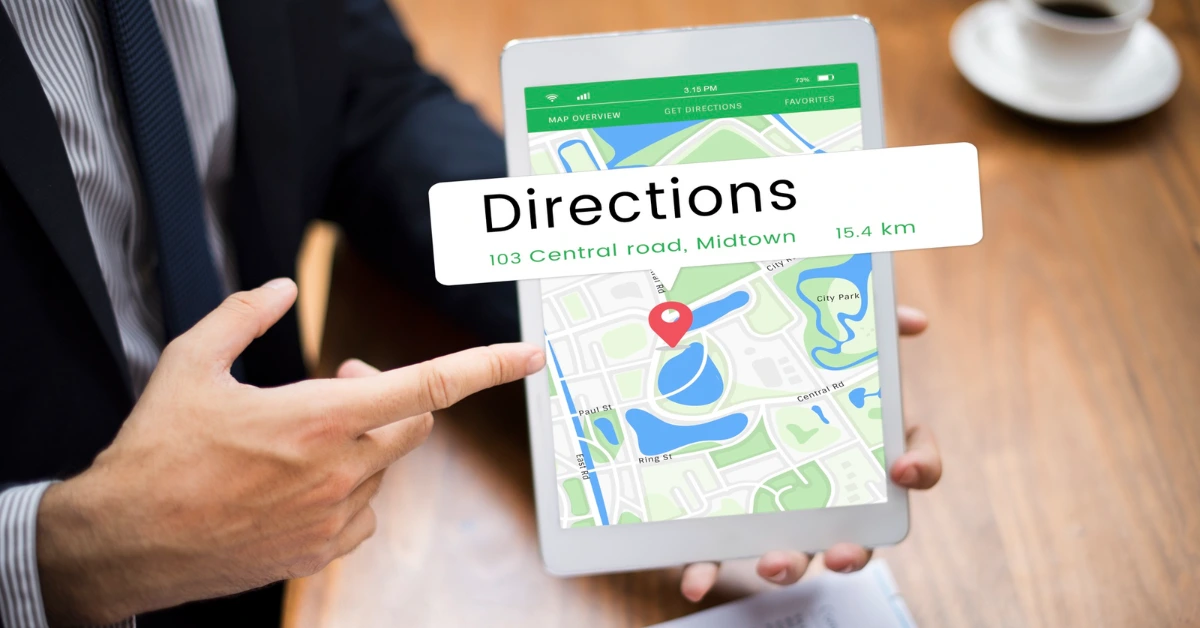B2B content marketing services involve creating and distributing valuable content (blogs, whitepapers, videos, etc.) to attract and educate business audiences In practice, this means developing targeted content and strategy to address the complex, multi-stakeholder buying cycles typical of B2B sales For example, a Sprout Social guide explains that B2B content marketing “involves producing high-quality content that…addresses major pain points of B2B consumers,” and then strategically distributing it via blogs, social media, email, search and other channels Indeed, studies show 90% of B2B marketers use blog posts and 78% use LinkedIn for content, underlining the importance of written and social content in this space Because B2B buyers research extensively and take longer to decide, content marketing helps educate prospects without one-to-one communication
B2B marketers face several challenges that these services help solve. A joint Content Marketing Institute survey found the top issues are audience alignment, consistency, differentiation, SEO optimization, and content quality. For example, 60% of teams cite “lack of resources” for content creation as a major hurdle. The bullet list below summarizes key concerns:
- Resource constraints: Many B2B teams are understaffed. Nearly 60% cite a lack of resources for content work making outsourcing attractive.
- Strategic planning: Aligning content to business goals and the right personas is critical. Without a clear strategy, content can miss its mark.
- Content creation: Consistently producing high-quality, SEO-optimized content (blogs, case studies, emails) is difficult. Expertise in writing, editing and SEO is needed.
- Promotion and differentiation: Standing out and getting content seen via SEO, social, or PR requires specialized tactics (e.g. digital PR, thought-leadership outreach).
- Measurement and optimization: Tracking ROI and iterating on content performance (analytics, KPIs, conversion data) demands dedicated analysis
Given these complexities, many B2B companies partner with content marketing service providers – agencies or consultants who offer end-to-end solutions. These services can lighten the load for in-house teams: by handling writing, design, SEO, and analytics, agencies let client teams focus on core strategy while ensuring the work is done by experts immersed in the latest trends
Why B2B Companies Need Content Marketing Services

B2B buying processes are inherently long and complex Unlike B2C, multiple stakeholders (engineers, managers, executives) often evaluate B2B purchases. Content marketing services help by creating a content funnel to educate each decision-maker at the right time. For instance, introductory “what is” articles or webinars attract new leads, while in-depth whitepapers or case studies nurture warm prospects. Sprout Social notes that content marketing is a relatively low-cost channel with a high return; it requires labor and tools but most publishing channels (search, email, social) cost little, making the investment highly efficient
Moreover, content marketing has a long shelf life. Well-crafted articles and resources continue to drive organic traffic and leads long after publication This compounding benefit is crucial in B2B, where each content piece can support lead generation over months or years. In practice, providing valuable answers to B2B buyers (e.g. “How to choose a B2B marketing agency” or “What content services do manufacturing firms need?”) reduces the need for one-on-one sales calls. Instead, prospects self-educate through the content, and marketers “meet them where they are” in the research process.
Finally, specialized content marketing services bring expertise and scale. Instead of hiring and training multiple specialists (writers, designers, SEO analysts), a company can tap an agency’s full team and technology. As one digital marketing guide explains, “if you have the resources… in-house marketing can provide control and brand familiarity. However, if you want cost-effective access to expert talent, cutting-edge tools, and scalable strategies, working with an agency is the smarter choice. In short, B2B content marketing services combine strategy, creative, and analytics to solve the challenges listed above, making them essential for many B2B firms.
Popular Types of B2B Content Marketing Services
Content marketing agencies typically offer a menu of services to handle the entire content lifecycle. Common offerings include:

- Content Strategy & Planning: Defining goals, target personas, and key topics. A solid strategy aligns content with business objectives and audience needs Agencies often perform audience research, content audits, and editorial planning as part of this service
- Competitive Content Analysis: Studying competitor content to find gaps and opportunities This involves cataloging competitors’ content, analyzing what topics they cover and how they rank, and identifying unmet needs that your content can address.
- Concept & Ideation Development: Brainstorming content ideas and campaign themes that differentiate your brand. Good concept development ensures content addresses real pain points and stands out in the market. Agencies may facilitate ideation workshops to generate creative angles aligned to your goals.
- Content Creation (Writing & Production): Researching and writing content such as blog posts, white papers, ebooks, infographics, and more. High-quality drafting is essential in B2B: it builds authority and drives leads by engaging target audiences. This service usually includes SEO optimization (keyword integration, meta tags) and editorial processes (editing, fact-checking) to ensure relevance, accuracy and readability.
- Thought Leadership & Influencer Content: Producing expert-driven content (articles, interviews, webinars) that showcases leadership in your field This might involve working with industry experts or executives as authors or interviewees, or creating content that positions your brand as a market authority.
- Design & Visual Content: Crafting graphics, slide decks, and interactive media. Good design makes content more appealing and digestible Services include branding, infographic design, presentation slides, and other visuals that enhance written content. A consistent visual identity is often developed so that all content feels coherent.
- Video Content Production: Scripting, filming, and editing video content. Video is highly engaging for B2B audiences; it can increase time on page and social shares. Agencies may create explainer videos, interviews, product demos, or animated shorts. This service covers everything from concept and storyboarding to post-production and SEO for video platforms.
- Content Distribution & Promotion: While not always listed, many services include syndication and promotion (e.g. social media scheduling, email newsletters, or paid amplification). This ensures content reaches the intended audience. Some firms also offer digital PR and link-building to get content published on industry sites (as one agency notes, they help clients “get their articles published on Forbes and Entrepreneur”)
- Performance Analytics & Optimization: Measuring how content is performing (traffic, engagement, leads) and refining strategy accordingly. Content analytics services track KPIs and audience behavior Agencies use these insights to recommend updates (republishing, repurposing, new topics) and prove ROI by linking content to business outcomes.
In-House vs. Agency Services

Should a B2B company build its own content team or hire an agency? Both approaches have trade-offs. In-house teams offer deep brand knowledge and control: employees live and breathe your products and culture, so they naturally produce on-brand content. It’s easier to provide feedback and make quick changes when working next to your marketing department. However, assembling a full content team is costly (salaries, tools, overhead) and slow: a 2024 analysis notes that creating an in-house marketing team can cost on the order of $250K per year for a small team Recruiting and training specialist roles (writers, SEO, designers) takes time, and turnover can disrupt momentum.
By contrast, agencies give access to specialized talent and scalability. A marketing guide explains that if you lack in-house resources, “working with an agency is the smarter choice” because agencies pool experts in writing, SEO, analytics, design, and more. You pay a predictable retainer instead of full-time salaries. Agencies also invest in tools and processes (SEO software, content templates, research subscriptions) that a small in-house team might not afford. On the downside, agencies start out learning your brand and may serve multiple clients at once, so you relinquish some day-to-day control.
Key factors to consider:
- Expertise vs. Familiarity: In-house teams know your brand and industry from the inside but agencies bring broader experience (having worked with many clients).
- Cost and Flexibility: In-house hiring is a large fixed cost. Agencies usually operate on monthly packages or hourly retainers (for example, content writing packages might start around $1,500–$3,000/month for a set output. However, an agency can often scale services up or down quickly.
- Capabilities: Agencies may offer full-service content (strategy through distribution), whereas an in-house team might focus on just writing or one channel unless the company hires for every function.
- Collaboration: Some prefer in-house because communication is easier (walk down the hall vs. calls). Others find that good agencies have structured processes for regular check-ins and feedback.
Ultimately, many B2B companies use a mix: keeping core strategy and account management in-house, while outsourcing heavy lifting like content production, design, and analytics to an agency. The right choice depends on your budget, timeline, and whether you need deep in-house industry expertise or broad content skills.
Conducting Keyword Research and Semantic Targeting
Thorough keyword research underpins effective B2B content marketing. This means identifying not just high-volume search terms, but also industry-specific and question-based keywords that business buyers use. A common approach is to analyze competitors and industry resources: for instance, Search Engine Land recommends mining industry glossaries or competitor websites for relevant terms If you’re in a niche like “sales enablement software,” a competitor’s glossary might reveal specialized terms you hadn’t thought of. Similarly, conference agendas and trade publications often highlight trending topics that can become valuable keywords.
Use a mix of tools (Ahrefs, SEMrush, Google Keyword Planner, etc.) to gauge search volume and difficulty, but also analyze search intent. In B2B, it’s crucial to target terms with commercial or educational intent. Question-phrase keywords (e.g. “how to choose a B2B marketing agency” or “best content marketing strategies for SaaS”) are especially important, since decision-makers frequently search with Who/What/How queries. Incorporating related and semantic keywords (synonyms, long-tail variations, LSI terms) helps content rank on those question queries. Modern NLP-driven tools can suggest such related terms. In practice, building topic clusters around core terms ensures you cover all facets of a buyer’s query set.
For example, a tech B2B firm might target “B2B marketing strategy” as a core term, then create supporting content around “what is content marketing,” “B2B vs. B2C marketing differences,” “in-house vs. agency content marketing,” and “keyword research for B2B.” This way, the content answers the variety of ways an executive might ask about marketing services. Search Engine Land notes that even basic “What is X” content can attract executives who aren’t familiar with technical jargon, while also earning organic links that boost your authority
In summary, deep keyword research for B2B involves using tools and manual techniques to gather a wide range of relevant terms (including FAQs and niche topics and then creating high-quality content around them.
Conclusion
B2B content marketing services encompass everything from planning and keyword research to content creation, design, promotion, and analytics. They exist because B2B companies need to educate complex audiences across long sales cycles, and doing this in-house requires significant expertise and resources By leveraging specialized services – whether through an agency or a hybrid model businesses can produce consistent, high-quality content (blogs, whitepapers, videos, etc.) that drives leads and authority. Key decisions include choosing services that fit your industry for tech balancing in-house control versus agency scale and ensuring the chosen provider offers transparency in pricing and results. A well-executed B2B content marketing program, grounded in rigorous keyword research and aligned to buyer needs, ultimately becomes a powerful engine for inbound leads and revenue.







Share